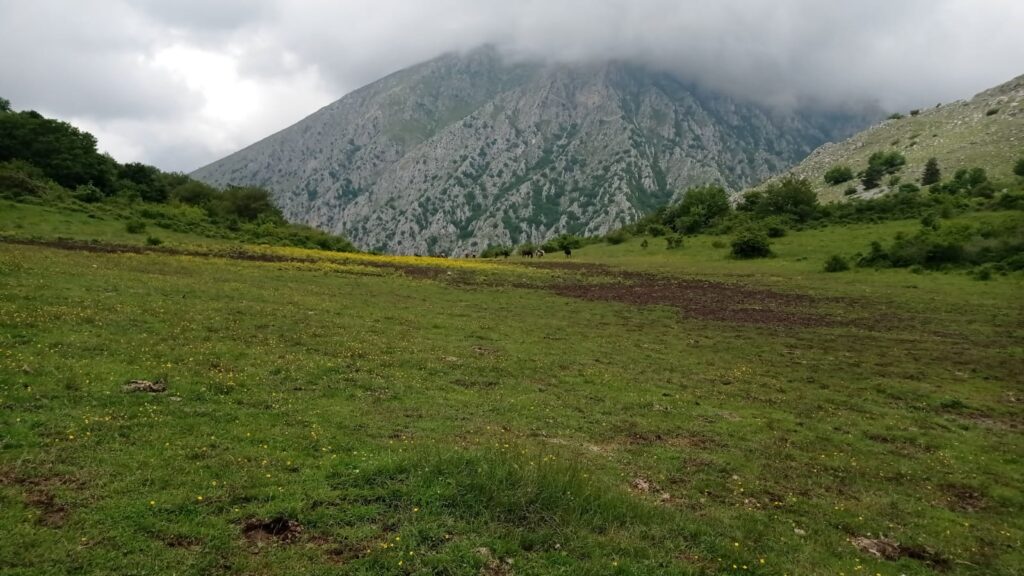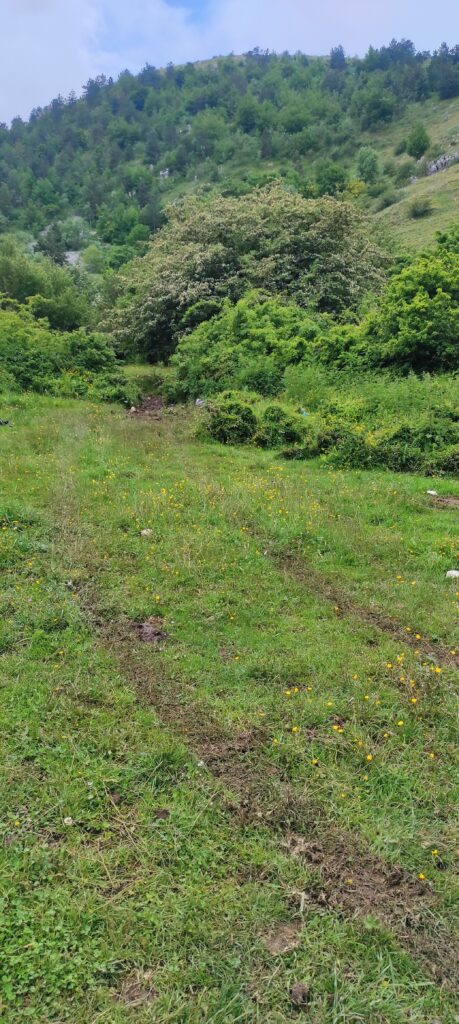Still poison scattered in the lands of bears and wolves, in the central Apennines. Another criminal attack against wildlife, this time thwarted thanks to the presence on the territory and constant monitoring of the Rewilding Apennines team.

On last June 13th, as part of an inspection relating to the monitoring of Griffon vultures, in the territory of Aielli, in the locality of Prati di Cerro, in the Sirente Velino Regional Park, the Rewilding Apennines team together with the Park’s staff stumbled across a pig carcass sprinkled with poison. It was found a few meters from the remains of a horse, which was almost completely consumed by Griffon vultures and other scavenging animals.
Luckily, the carcass showed no signs of consumption by wildlife.
The Forestry Carabinieri of Celano, the NIPAAF of L’Aquila (Environmental, Agri-Food and Forestry Police Investigation Units) and the Anti-Poison Dog Unit of Assergi were immediately alerted. The staff of Rewilding Apennines and the biologist of the Sirente Velino Regional Park, Dr. Paola Morini remained on the spot until the veterinarian of the Local Health Authority 1 of Avezzano also arrived. The vet ordered the removal of the carcass and delivery to the Zooprophylactic Institute of Teramo for chemical and genetic analyzes and the initiation of investigation procedures by the Investigative Nucleus of L’Aquila.

What was found in Aielli is a further demonstration of how the use of poison is still widespread in the Central Apennines by those who still see large predators as antagonists and not allies of their economic activities. Only thanks to the constant presence of Rewilding Apennines staff in the area it was possible to avoid another massacre, like the one that took place a month ago in Cocullo, in which an entire pack of wolves, nine to be precise, was exterminated, together with at least eight Griffon vultures – two of which were chicks in the nest – and two common ravens. Also last month, two other episodes of suspected poisoning led to the death of five Griffon vultures in total, causing alarm in the province of Frosinone, not far from the Buffer Zone of the Abruzzo, Lazio and Molise National Park, in the middle of the ecological corridor.
In Aielli, the Investigative Nucleus of L’Aquila immediately began investigations and identified some suspects who would have disposed of the poisoned pig carcass with the intention of hitting wolves.
Faced with this new episode of crime against biodiversity, Rewilding Apennines and all the signatory associations of the letter requesting urgent interventions on the poisoning issue addressed last month to all national and regional authorities are asking for clear signs of a response. The urgency of intensifying controls on the territory by the police bodies is reiterated in order to prevent these criminal acts and to quickly pass a law which essentially prohibits any productive activity for a long period in areas subject to episodes of poisoning, as happens in case of fire (Law 21 November 2000, n. 353) and as successfully implemented for years in Spain.
Furthermore, given how deeply rooted the poison culture is in the Central Apennines and in many other Italian areas, it would be important to invest at a national level in a long-term communication and education campaign against the use of poison to the detriment of wild fauna. In fact, only through a strong prevention and repression of these crimes and a growth of people’s awareness on the subject will it be possible to increasingly affirm the culture of coexistence between humans and wildlife in our Country.